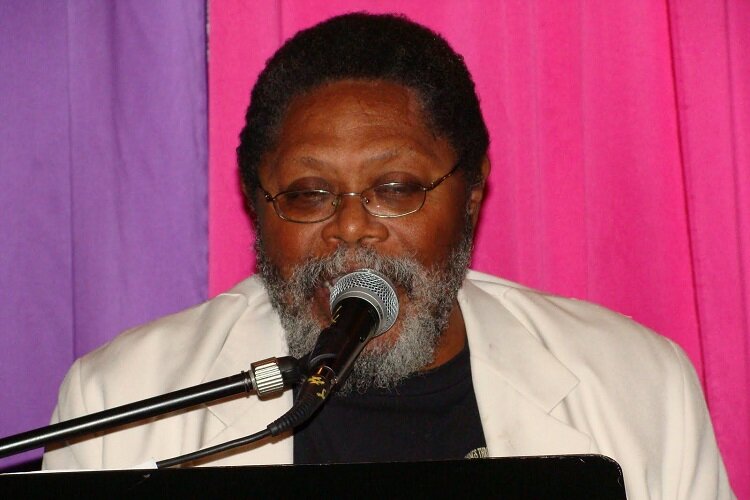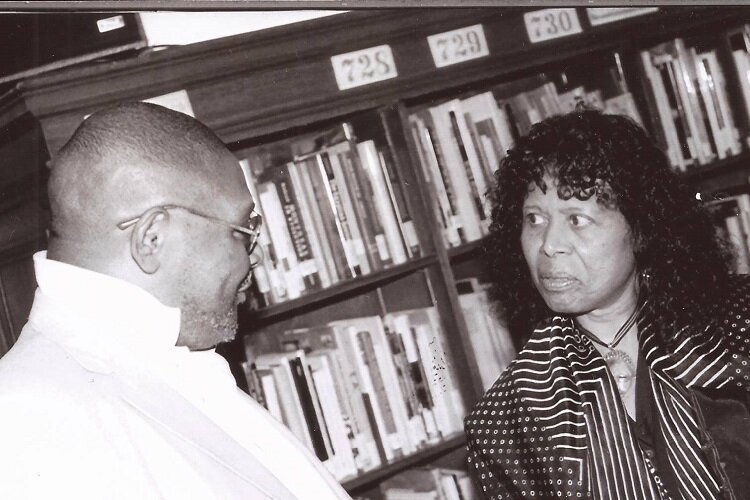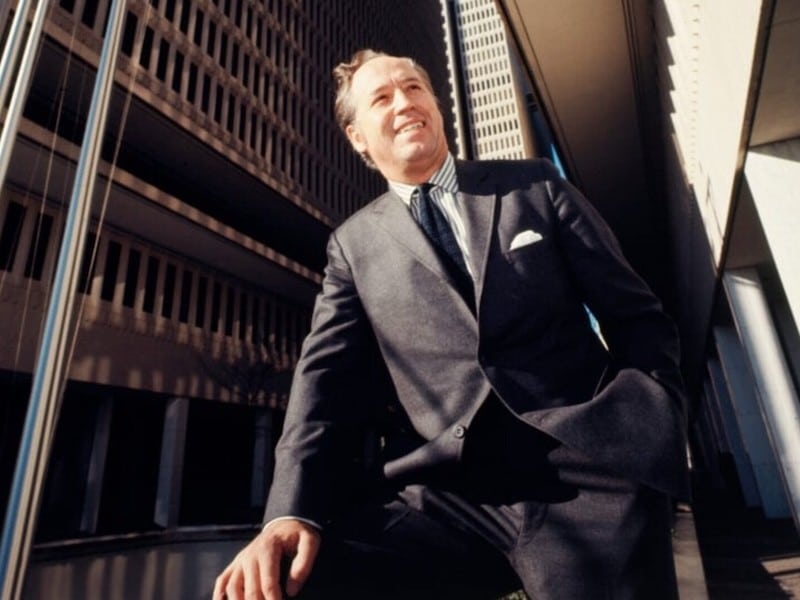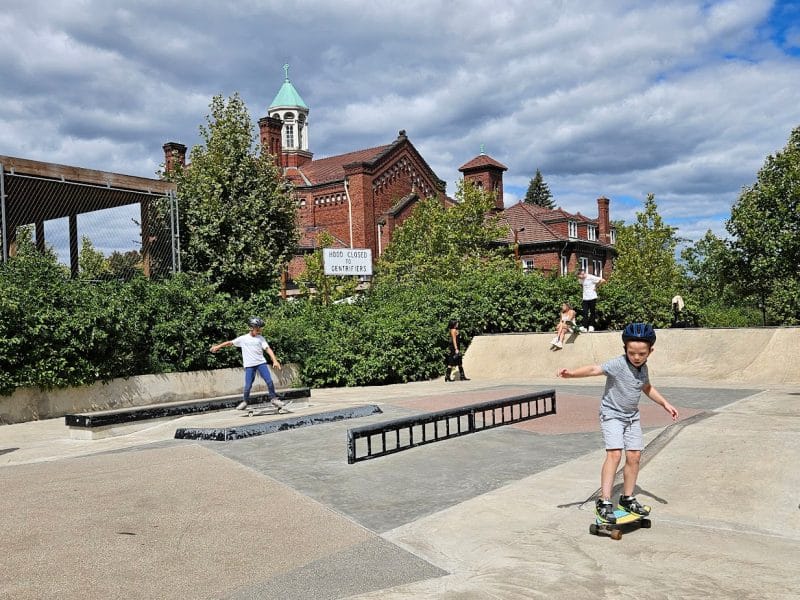The Ron Allen Project is fired up to make a film about this influential Detroit poet and playwright
This Motor City writer spent years breaking boundaries and nurturing communities of poetry and theatre in Detroit and L.A. Now a group of friends and artistic comrades are working to create a documentary about his work.
The late poet and playwright Ron Allen was an unforgettable presence on the creative scene that emerged in Detroit’s Cass Corridor in the latter half of the 20th century. Through his creativity and poetic mentorship, he changed a lot of people’s lives, including that of Detroit-area poet and singer Ruby Woods.
Woods met him in the 1980s through Horizons In Poetry, the influential Detroit poetry series Allen founded with fellow poets Wardell Montgomery and John Mason. For her, being exposed to Allen’s work was groundbreaking.
“No one was doing writing the way he was,” says Woods. “If you could come and check your rational mind, then you began to feel things. You’d get the energy of what is happening and you related to this panorama of experience.”
Influenced by the Black Arts Movement and avant-garde artistic currents, as well as music like bebop, Allen released four books of poetry, two
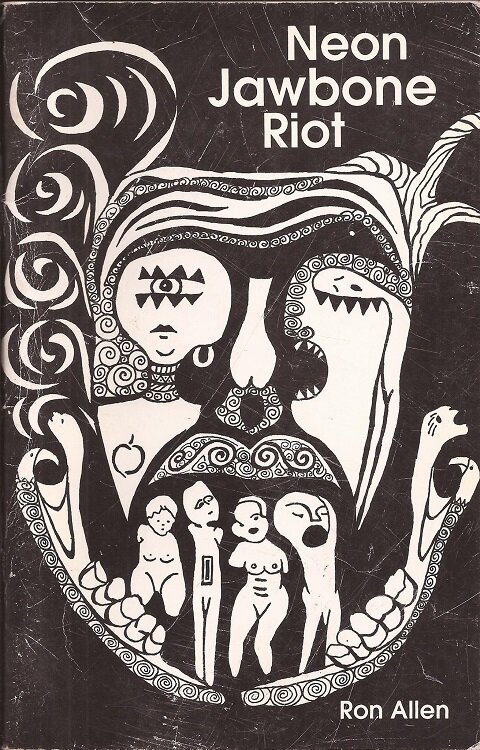
performance albums, and at least a dozen plays during his lifetime. One of his most well-known poems, “I Want My Body Back,” appeared in the 1988-89 issue of the Michigan-based Fifth Estate magazine and was also published in a book that shared its name; several of his other poems can be found on his blog, Weightless Language.
Allen’s theatrical career began in 1997, with the formation of his acting company, the Thick Knot Rhythm Ensemble, which breathed life into his first play, “Last Church of the Twentieth Century.” That was followed up by a series of other visually and linguistically arresting productions with wild names like “Aboriginal Treatment Center,” “Dreaming the Reality Room Yellow,” and “Relative Energy Sack Theory Museum,” which were performed at local venues like the Furniture Factory and the Zeitgeist art gallery.
James Perkinson, a Detroit educator and poet involved with Horizons In Poetry, remembers watching director John Jakary’s production of Allen’s play “The Heidelberg Project: Squatting in the Circle of the Elder Mind,” which explored the work of Detroit artist Tyree Guyton.
“[Allen] was somebody who could take all the color and the repurposed garbage
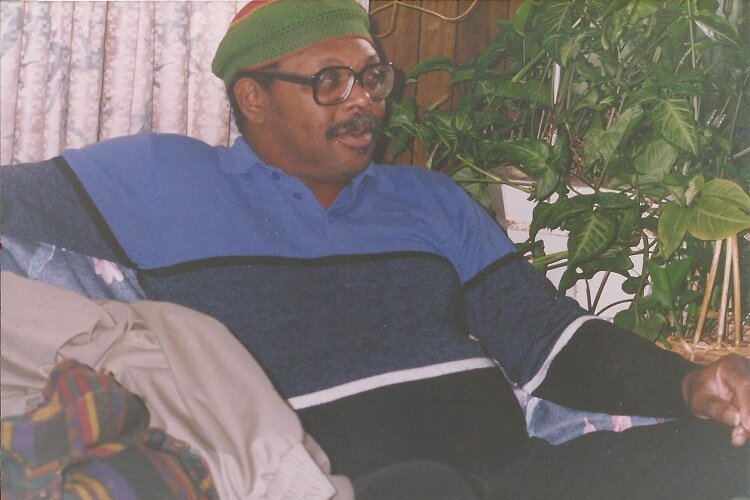
and entropy that was dumped on the inner city by the suburbs and run it through his mouth in a way that matched what Tyree was doing with color. Ron’s tongue and Tyree’s palette were very much simpatico.”
Allen passed away in Los Angeles in 2010 at the age of 62, but friends and creative collaborators like Woods are now working to keep his memory alive through an effort called the Ron Allen Project.
The initiative came together in 2015, after poet Donna Vinstra approached Woods to discuss staging one of Allen’s plays. The two of them got to talking and decided they wanted to do something a little more ambitious.
“We decided what would really be wonderful would be to do a documentary film focusing on his work and time in the Corridor,” says Woods. “I’m also hoping [we can] do a multimedia exhibition that would include film and photographs, memorabilia, recorded, interviews and some live readings.”
‘Living Embodied Transformation’
Allen occupies a fairly unique place in Detroit’s literary landscape, in part, because of his uncompromising style, but also because of the way he integrated varying elements of his experience into his creative activities.
A native of Detroit, he was profoundly affected by his experiences as a soldier in Vietnam and also struggled with issues connected to schizophrenia
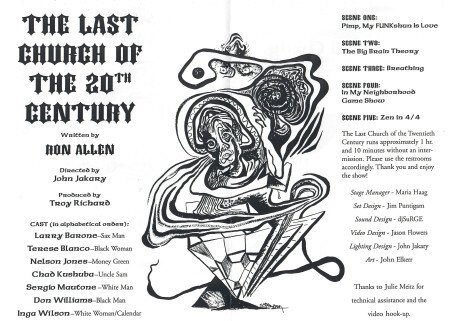
and substance abuse. The poet-playwright was also a deep thinker who constantly explored ideas and developments connected to the arts, political theory, science, and spirituality. Perkinson says these different aspects of Allen were essential to his work.
“He came back [from the war] and immediately out of the trauma … got into dope culture. He then started writing his poetry to climb out of this parallel universe without ever leaving it behind, which was his genius,” he says. “He was avant-garde meets the street, holding the creativity of surrealism, [Amiri] Baraka, [Richard] Foreman, all kinds of people, accountable and processing them through his own location, never leaving inner city Detroit.”
Beyond his collaborations, Allen also frequently held workshops for recovering addicts at places like the Mariners Inn, a local homeless shelter and treatment center. Participants in these sessions later released a chapbook of their work.
Carla Harryman, a Detroit-area educator and writer, accompanied Allen to several of those workshops. She found it quite striking how Allen could both operate under the framework of Christian recovery programs while also submitting their programming to a radical critique.
“His mentoring in terms of writing poetry was similar to Horizons In Poetry,” she says. “But he lectured. He brought Marx into the discourse. He told people just baldly, ‘When you consent to the idea that everything that has brought you to where you are now is your problem and nothing else, you’re going to end up right back in the same situation.'”
Later in his life Allen became a Buddhist monk who was active with Detroit’s Still Point Zen Buddhist Temple. Then, in 2007, due in part to health issues, he relocated to Los Angeles.
During his time in California, Allen was active with Los Angeles Poverty Department (LAPD), a performance group founded by director-performer-activist John Malpede
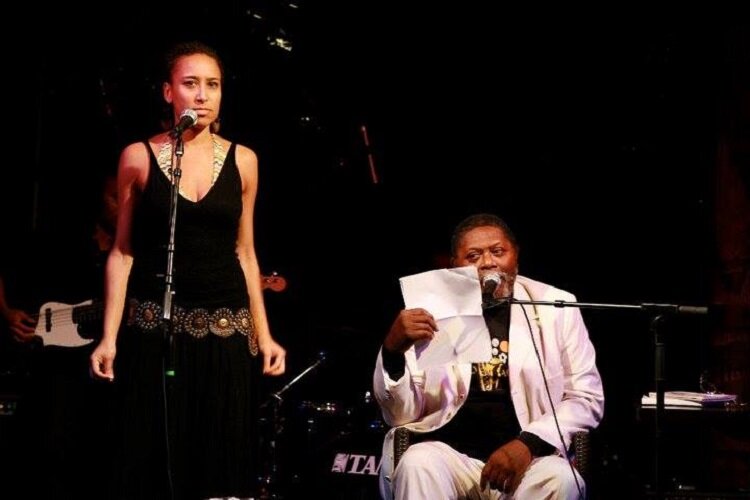
and composed largely of homeless individuals. The troupe performed his works at various venues in L.A.’s Skid Row. Today LAPD awards a Fried Poetry Prize in honor of Allen.
The L.A. artist, healer, and educator Sarah Cruse was a friend and caretaker to Allen towards the end of his life, as well as a bandmate in the jazz-poetry ensemble, Code Zero. She recalls playing a character in Allen’s final play, “Force 12,” which delved into the conflict between analytical reasoning and creativity, as well as the playwright’s own struggles with schizophrenia.
“As a participant, it was like being present inside fundamental chambers of his experience within a container of spacious awareness. It was a metabolic process. It was redemptive, transformational, as all of his work was,” says Cruse. “He was living embodied transformation.”
Honoring Allen
So far, roughly a dozen people have been involved with the Ron Allen Project. As part of its multimedia focus, the group established a facebook archive full of photos and links related to Allen in 2017. Beyond that Woods has been busy collecting and digitizing archival footage of Allen and Hannan Center art director Richard Reeves has been filming interviews with fellow artists and others who knew him, including Wardell Montgomery, Kim Hunter, M.L. Liebler, Sandra Hines, Willie Williams, and Gwen Joy.
The project has been applying for grants to help produce the documentary and recently reached out to Jo D. Jonz, who directed “Force 12” to see how they might collaborate. While funding has been hard to come by, and the pandemic has created additional challenges, Woods and others involved with the effort are doing what they can to raise awareness of Allen’s legacy.
“We have a lot of stuff waiting for the right artist and money to pull this thing together,” says Woods. “He was a powerful force creatively, artistically, spiritually. He helped so many people in the sobriety community, and he was a catalyst for so many people. … I feel [his work] deserves a [documentary] and multimedia presentation.”
